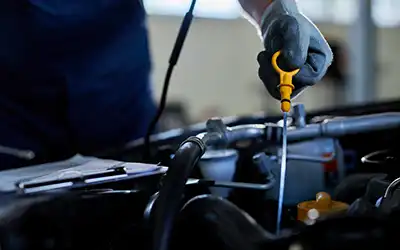3 Preventative Vehicle Maintenance Actions to Prioritize
Keep Your Vehicle Running Smoothly
Regular, preventative vehicle maintenance will help to keep your vehicle running smoothly for years to come. And when it comes time to sell or recycle it, a vehicle that has been well cared for will return a higher trade in value.
Preventative Vehicle Maintenance
Here’s a list of 3 preventative vehicle maintenance actions you should take to reduce the risk of major vehicle issues later down the road:
1. Oil Changes
Regular oil changes are perhaps one of the most impactful preventative vehicle maintenance actions you can take to ensure your car drives properly. It is important to note that different vehicles require different types of oil, based on their model, size, driving conditions etc. If you plan to change the oil yourself, the type of oil for your vehicle will usually be stamped directly on the oil cap. You can also take your vehicle to any trusted auto garage or shop to have the work done for you.
Some newer vehicles may have a dashboard warning light to alert drivers when an oil change is needed. If you have your oil changed at an auto shop, the technicians will usually put a clear sticker on your windshield with the mileage amount when your next oil change will be needed. With most modern vehicles, you can expect to run between 5,000 – 7,000 miles between each oil change.
2. Tire Rotations
A tire rotation service routinely moves your tires from front to back or side to side to help them wear evenly over time. The type of vehicle you have (front, rear, all, or four-wheel drive) and the type of tires you use (directional vs. non-directional) impact the best pattern for rotating your tires. A trusted auto shop should know how to rotate your tires for maximum efficiency.
Allowing your vehicle’s tires to wear evenly helps your vehicle ride smoother and allows you to receive their maximum tread life, extending the lifespan of each tire so you do not have to purchase new ones as frequently.
Most tires should be rotated every 5,000 miles or whenever the tire manufacturer recommends it. Whether you perform this maintenance yourself or have an auto technician do it for you, your regular oil change date is a great time to have your tires rotated!
3. Fluid Replacement
There are several different types of fluids in vehicles that are used to accomplish a variety of tasks. Fluid replacement maintenance for your vehicle includes:
- Windshield Washer Fluid
- Engine Coolant
- Brake Fluid
- Power Steering Fluid
- Transmission Fluid
- Differential Fluid
All these essential fluids help keep your vehicle operating correctly and at top capacity. They help carry out vehicle functions that allow internal parts to move smoothly and not overheat. These fluids should be changed regularly, when the main part component is replaced, or when your vehicle warning light indicates an issue with it.
Windshield washer fluid is simple to change by just pouring more washer fluid into the container to the fill line. Some vehicles have a warning light for low windshield washer fluid, but it is a good practice to regularly check your washer fluid, especially in winter months.
Engine coolant, also known as antifreeze, change times differ between vehicle manufacturers. Check your driver’s manual for a recommended engine coolant fluid timing or a trusted auto shop can find the correct information for you.
Brake fluid should be changed roughly every 25,000 miles. A good time to change your brake fluid is whenever you replace pads and rotors on your vehicle.
Power steering fluid impacts the ease of your steering wheel turning capabilities. This fluid doesn’t need to be replaced often, but it is recommended to change it between 60-80,000 miles.
Transmission fluid allows your vehicle’s transmission components to operate smoothly and failure to change this fluid can lead to transmission failure and costly repairs. Transmission fluid should be changed between 25-40,000 miles.
Differential fluid is used to lubricate gears which impacts your vehicle’s axel and wheel torque. Although this fluid has a long lifespan, it does break down and should be replaced around 80-120,000 miles.
Ensure Your Vehicle Lasts for Many Years
Performing regular, preventative vehicle maintenance will ensure your vehicle lasts for many years with limited issues. Ensuring your vehicle has been properly maintained and serviced will allow you to receive a higher trade in value for it, either from a dealership or an auto broker like Sell My Junk Car.
Want to know how much your vehicle is worth? Contact us today!

